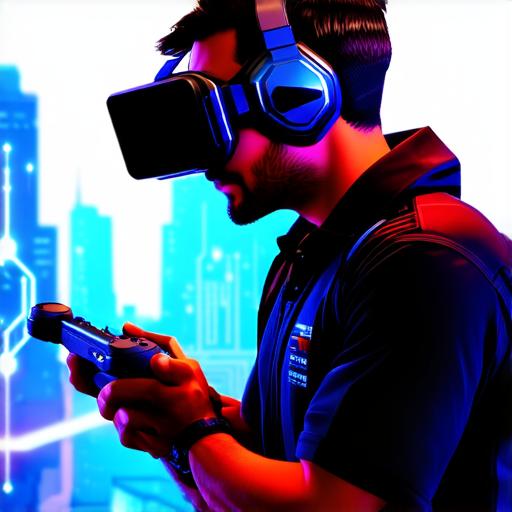
What are the uses of virtual reality?
Virtual reality (VR) is a rapidly evolving technology that has already transformed various industries such as gaming, healthcare, and education. With the ability to create immersive and interactive experiences, VR has limitless potential for innovation and growth. In this article, we will explore the uses of virtual reality, its benefits, and how it can transform different sectors.

Virtual Reality: A Brief Introduction
Virtual reality is a computer-generated simulation that allows users to interact with a digital environment as if they were in the real world. The technology has been around for decades, but recent advancements in hardware and software have made VR more accessible and affordable. Today, there are various types of VR devices available, including headsets, handheld controllers, and motion tracking sensors.
Virtual Reality for Gaming
The gaming industry is one of the first to embrace virtual reality technology. With VR, gamers can experience a level of immersion that was previously unimaginable. They can explore new worlds, interact with characters, and engage in realistic combat. Moreover, VR games provide a unique opportunity for players to socialize and collaborate with others, creating a sense of community that is often lacking in traditional gaming.
Virtual Reality for Healthcare
Virtual reality has the potential to revolutionize healthcare by providing patients with immersive and interactive experiences that can enhance their overall well-being. For example, VR can be used to simulate surgical procedures, allowing doctors to practice and perfect their skills in a safe environment. Additionally, VR can be used to treat mental health conditions such as anxiety and depression by creating simulations that trigger specific emotions and responses.
Virtual Reality for Education
Virtual reality technology has the potential to transform the way we learn. With VR, students can take virtual field trips to different parts of the world, explore historical events, and even practice their language skills in a simulated environment. Moreover, VR can provide a safe and controlled environment for students to learn about dangerous subjects such as chemistry and physics.
Virtual Reality for Training and Simulation
Virtual reality technology is increasingly being used for training and simulation purposes in various industries. For example, military personnel can use VR simulations to practice combat strategies and develop their decision-making skills. Similarly, pilots can use VR simulations to train for complex flight maneuvers and emergency procedures. Moreover, VR can be used to simulate real-world scenarios in industries such as construction, manufacturing, and logistics, allowing employees to practice and perfect their skills in a safe environment.
Virtual Reality for Tourism
Virtual reality technology has the potential to revolutionize the tourism industry by providing travelers with immersive and interactive experiences that can enhance their overall travel experience. For example, VR can be used to create virtual tours of museums, historical sites, and natural wonders, allowing travelers to explore these places in a more intimate and personal way. Moreover, VR can provide a safe and controlled environment for tourists to learn about dangerous or exotic destinations.
Virtual Reality for Marketing and Advertising
Virtual reality technology is increasingly being used for marketing and advertising purposes. With VR, brands can create immersive and interactive experiences that can capture the attention of consumers and create an emotional connection with them. For example, car manufacturers can use VR to showcase their products in a virtual showroom, allowing consumers to explore different models and customization options. Similarly, travel agencies can use VR to create virtual tours of popular destinations, allowing potential customers to experience these places before they book their trip.
Virtual Reality for Entertainment
Virtual reality technology has the potential to revolutionize the entertainment industry by providing users with immersive and interactive experiences that can enhance their overall entertainment experience. For example, VR can be used to create virtual concerts and live events, allowing users to experience these events in a more intimate and personal way.


